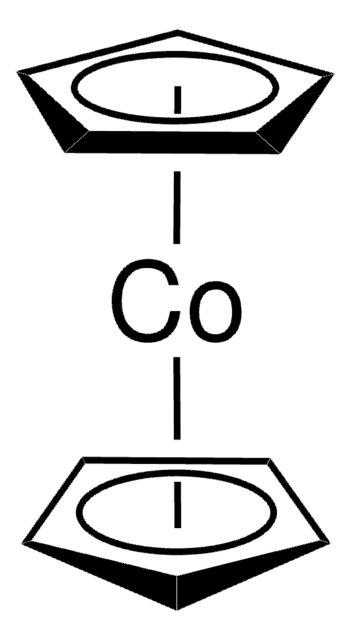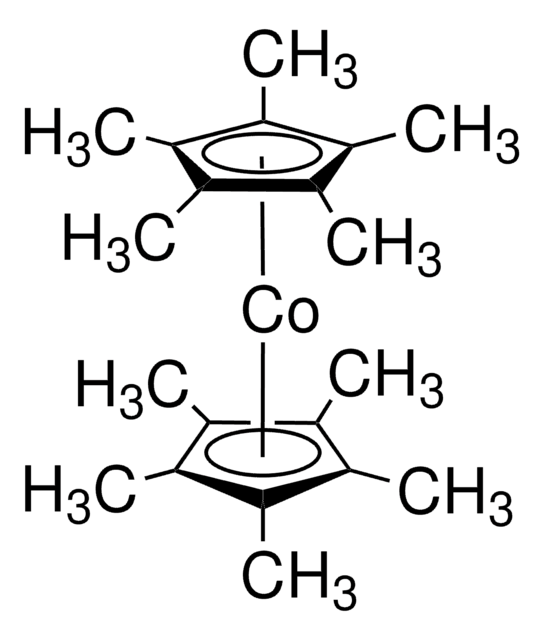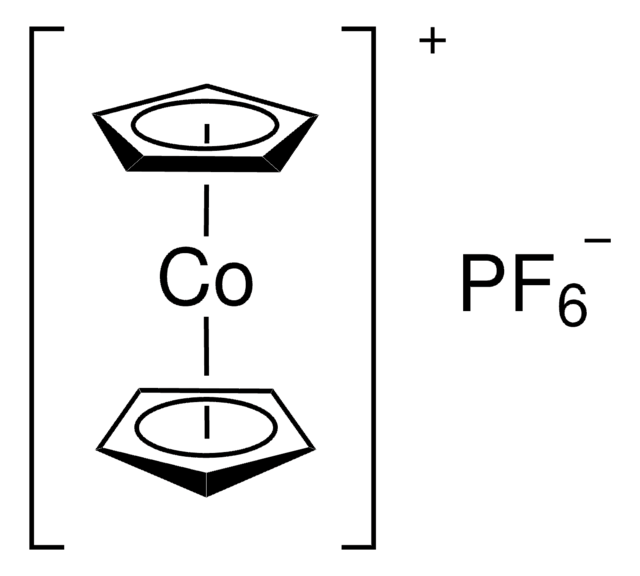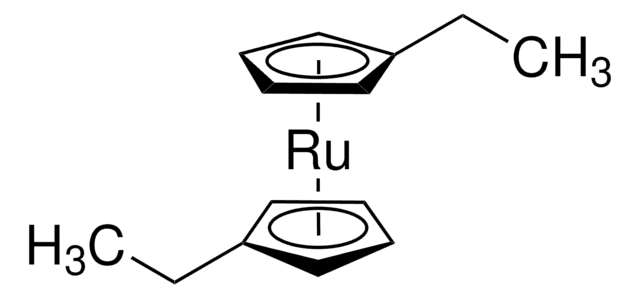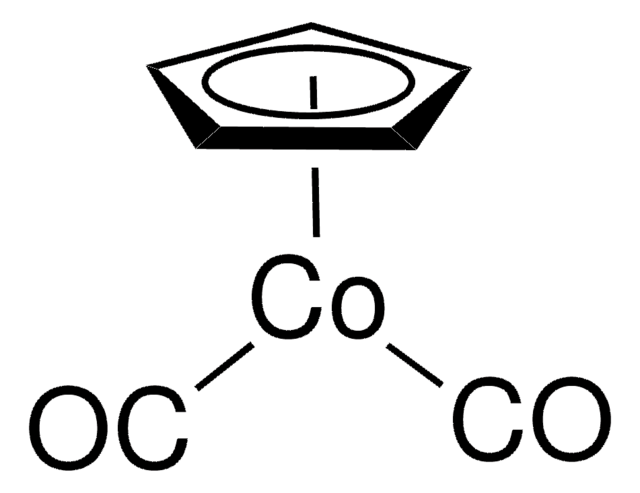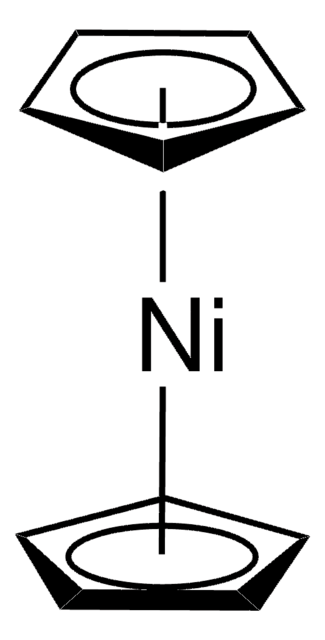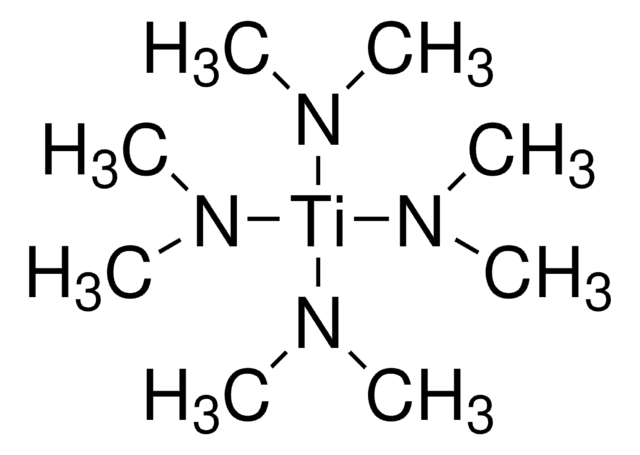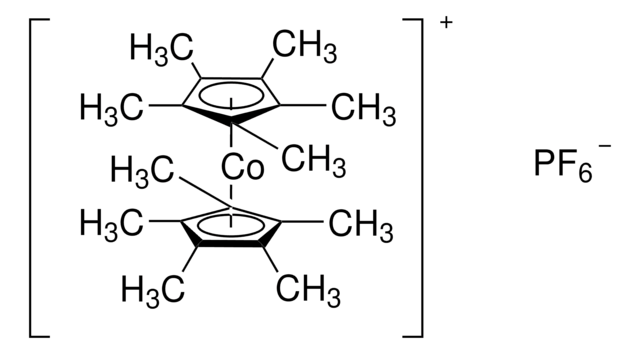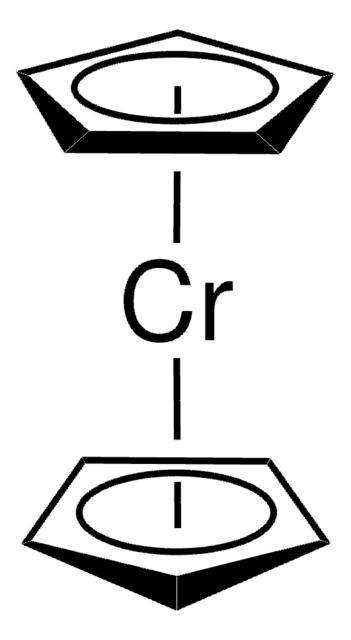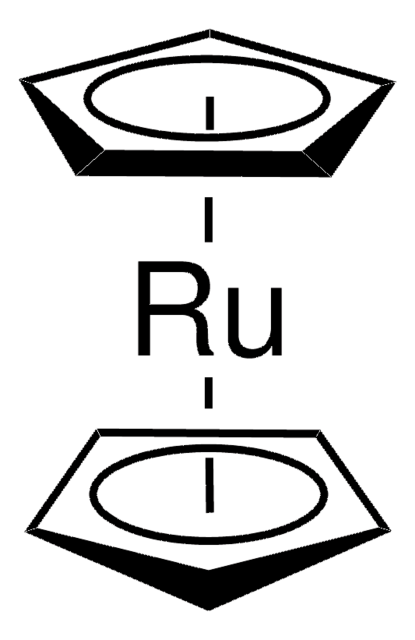510645
Bis(ethylcyclopentadienyl)cobalt(II)
Synonym(s):
(EtCp)2Co, 1,1′-Diethylcobaltocene
About This Item
Recommended Products
form
liquid
Quality Level
reaction suitability
core: cobalt
density
1.516 g/mL at 25 °C (lit.)
SMILES string
[Co].CC[C]1[CH][CH][CH][CH]1.CC[C]2[CH][CH][CH][CH]2
InChI
1S/2C7H9.Co/c2*1-2-7-5-3-4-6-7;/h2*3-6H,2H2,1H3;
InChI key
YHCQFTZSIGZRTR-UHFFFAOYSA-N
Looking for similar products? Visit Product Comparison Guide
General description
Application
Storage Class Code
10 - Combustible liquids
WGK
WGK 3
Flash Point(F)
Not applicable
Flash Point(C)
Not applicable
Personal Protective Equipment
Choose from one of the most recent versions:
Already Own This Product?
Find documentation for the products that you have recently purchased in the Document Library.
Customers Also Viewed
Articles
A hard disk drive (HDD) is a data storage device that stores digital information by magnetizing nanosized magnets on flat disks and retrieves data by sensing the resulting magnetic field.
Thin film photovoltaic devices have become increasingly important in efficiently harnessing solar energy to meet consumer demand.
Spin-based electronic (spintronic) devices offer significant improvement to the limits of conventional charge-based memory and logic devices which suffer from high power usage, leakage current, performance saturation, and device complexity.
Nanomaterials are considered a route to the innovations required for large-scale implementation of renewable energy technologies in society to make our life sustainable.
Our team of scientists has experience in all areas of research including Life Science, Material Science, Chemical Synthesis, Chromatography, Analytical and many others.
Contact Technical Service